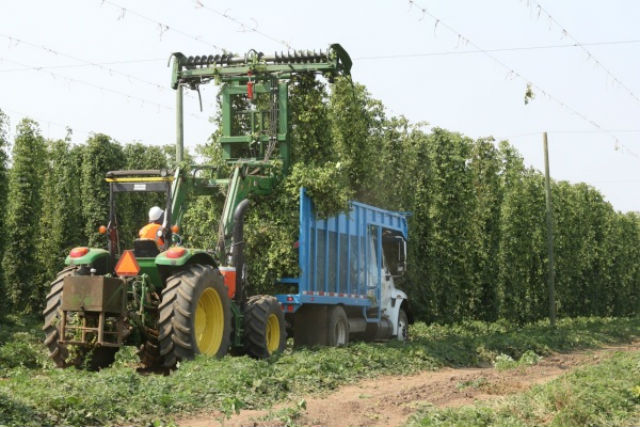
Timing is key when the name of the game is freshness, especially for breweries that use wet hops for a fresh harvest or a “bursting with hopness” type of ale.
Getting those hops into the boil means coordinating with farmers and your brew team.
“We have been doing this long enough that we have a clear routine,” explained Darron Welch, the Brewmaster for Pelican Brewing. The Oregon brewery has produced some of the first wet hop ales in the state and has nearly 15 years of experience of getting the timing down pat for their Eternal Ale.
“Our driver leaves for the farm at the same time as the beer gets mashed in,” Welch said. “It is about a 4-5 hour round-trip drive to the farm and back.”
Every brewery has its own way of getting the beer made, and it all starts with the fresh hops.
Bosque Brewing has been producing Acequia Wet Hop IPA for the last three years and the New Mexico brewery is doing it again this year said co-founder Jotham Michnovicz.
The beer has taken three medals, including a gold at the GABF in the wet or fresh hop category every year it’s been made.
“We typically source these hops from High Wire Hops in Colorado,” Michnovicz said.
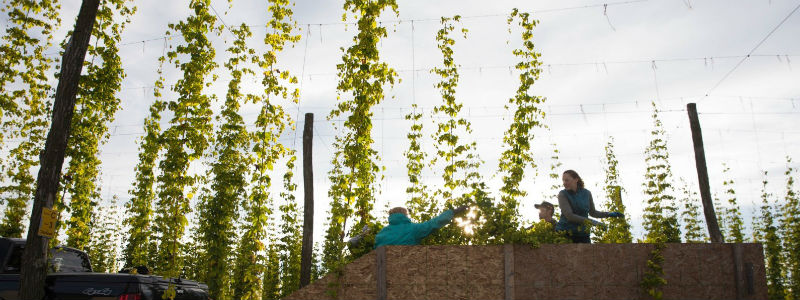 The proximity to the farm (about 400 miles north of the brewery) has been the driving force in recent years. A member of the Bosque team team typically meets a delivery driver from High Wire half way between the farm and the brewery.”
The proximity to the farm (about 400 miles north of the brewery) has been the driving force in recent years. A member of the Bosque team team typically meets a delivery driver from High Wire half way between the farm and the brewery.”
Given the success of their wet hop beers in the past, this year Bosque has decided to brew a wet hop series that will feature some wet hops from the Pacific Northwest (Mosaic and Citra from Yakima Chief), some locally grown hops from White Crow in northern New Mexico, and Acequia will again feature hops from High Wire.
In addition to Acequia, the brewery is making a DIPA with the White Crow hops, a NEIPA with the Mosaic, and a Blonde Ale with the Citra.
“Working with White Crow was in response to them reaching out to us and us getting to know them and their story,” Michnovicz said.
Michnovicz said it was fairly easy to work with Yakima Chief. He simply picked up the phone and made a call.
For Pelican, they have been working with Goshie Farms since they began making fresh hopped beer around 2003.
“It has been a great relationship, and it really gives us some insight into the grower side of our industry.,” Welch said. ” It is such a fun project every year to visit the hop farm and then brew with hundreds of pounds of fresh hops. It is not really a beer that can be scaled up, and the fresh hop character doesn’t last long, so there is an element of simply enjoying it in the moment that adds to the allure of this beer.”
Pelican uses fresh hops in the kettle in two doses, but to really drive hop character, they deep clean the lauter tun after all wort is collected, and use it as a giant hop back for the bulk of the fresh hops.
In all, about 70 percent of the hops go into the lauter tun/hop back, Welch noted.
In the Willamette Valley of Oregon, tractors are set to work for the next three weeks on Rogue Farms’ hopyard for the brewery’s ninth hop harvest. In all, 10 varietals of proprietary hops will be picked, stripped, sorted, kilned, cooled and baled for transport to Rogue’s brewery 77 miles away in Newport. This year’s harvest includes two new proprietary hop strains, Keven and Adair, which are now fully matured and brew ready.
Rogue is one of the only U.S. breweries to operate its own farm, staying true to the company’s DIY, ground-to-glass philosophy. The 52 acres of hops harvested will be used in Rogue’s Farm Beers, including the Hop Family IPA series, which features field-guide style labels to distinguish the hops in each IPA, as well as Honey Kolsch, Pumpkin Patch Ale and Fresh Roast.
“Hop production around the farm has increased dramatically since we first became farmers in 2008,” said Rogue President Brett Joyce. “Growing hops is an expensive and time-consuming endeavor, but it also helps to guarantee our supply and quality while allowing us to keep our Brewmaster, John ‘More Hops’ Maier, happy with unique, aromatic hops.”
Harvest season is underway at hop farms across Michigan as well for Bell’s Brewing, including the 2.5 acre field next to its brewery in Comstock.
On the first day of September, the brewery harvested Chinook, Cascade, and Newport hops. They were picked by employees and members of the High Five Hop Farm crew. After picking, the hops were brought to Hop Head Farms to be processed into pellets.
“Taking care of our very own hop farm and being a part of the harvesting process provides us with an important learning opportunity,” the brewery said in a statement. “This small hop field helps to provide a firm understanding and appreciation of our ingredients and the needs of our farming partners. We are also able to be a part of the full circle of beer, from land to enjoyment.”



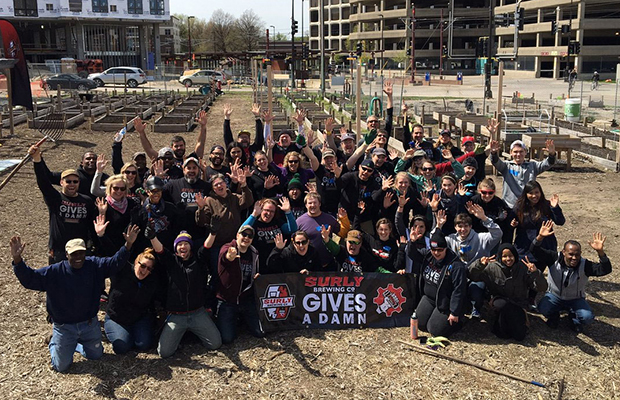
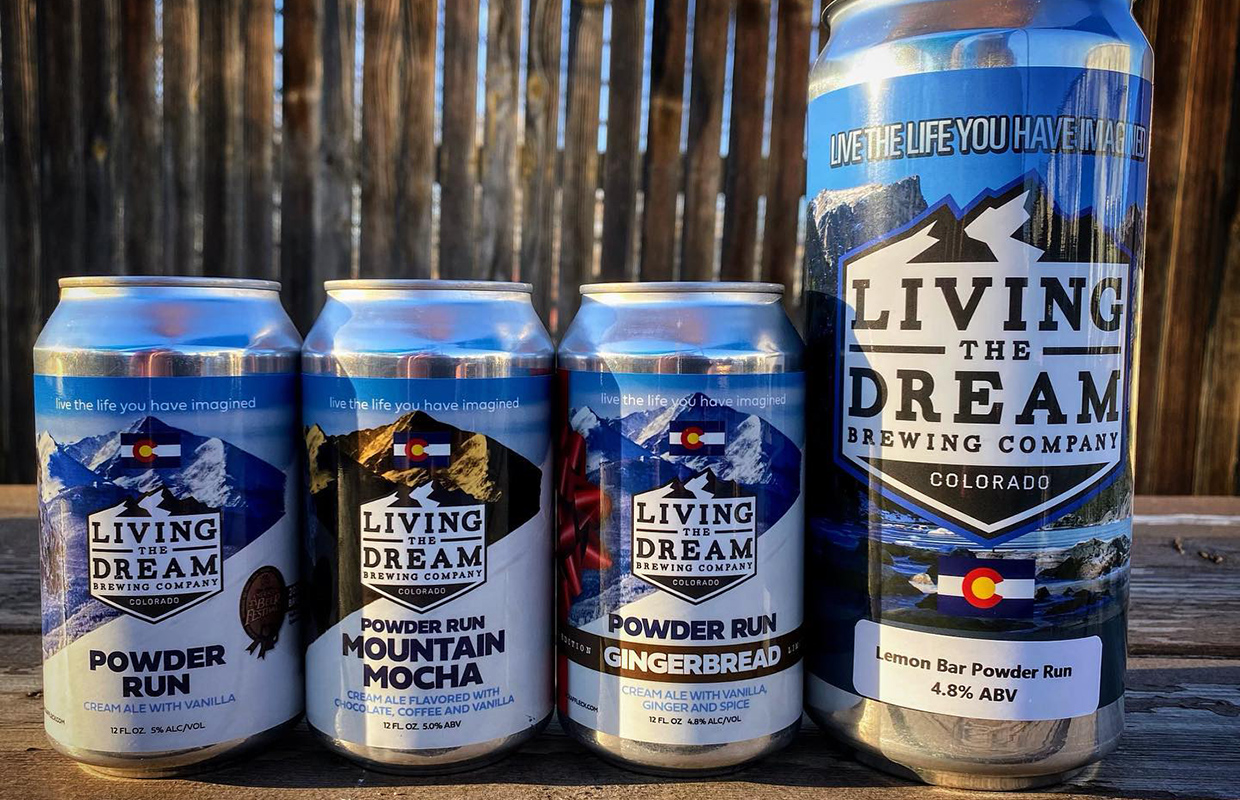
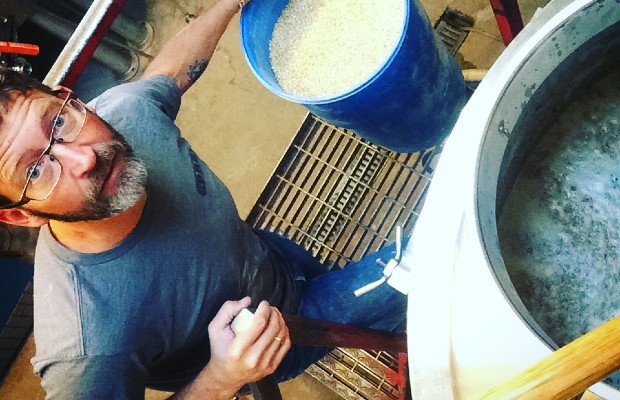
Be the first to comment